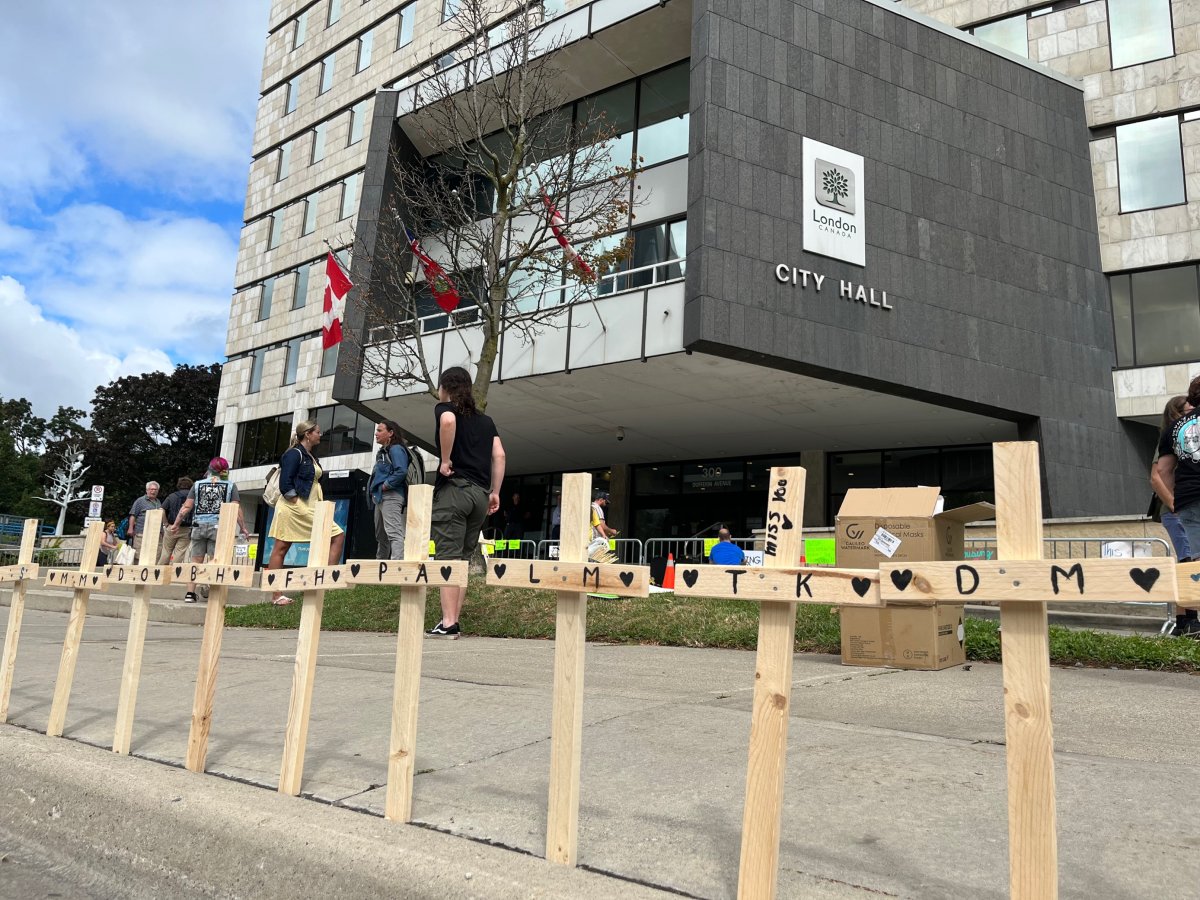As the city’s community response to housing and homelessness continues to be finalized, short-term work is being done to address what officials say could be a “rough” summer for those unhoused in London, Ont.

During a council meeting last week, Kevin Dickins, deputy city manager of social and health development, told councillors the summer was shaping up to be challenging.
“It’s going to be rougher than most summers, and most summers are really, really rough,” Dickins told council last week.
While the framework of London’s Health and Homelessness Whole of Community System Response is set to be finalized over the coming weeks, officials realized short-term action is needed to cover the “rough summer” ahead for the between 400 and 600 unhoused in London.
The whole community response comprised of multiple summits bringing together more than 200 people and 80 agencies to find a long-term plan. But for this summer, a smaller group of agencies are needed to offer more agile, mobile supports.
Scott Courtice, the executive director of the London InterCommunity Health Centre, says people from various agencies have had talks and will meet formally on Friday to plan how they will assist with those who are unhoused, and with encampments expected over the summer.

“We’ve seen increased deaths, increased desperation out on the streets … so what can we do in the immediate term as a team to make things better?” said Courtice.

Get weekly health news
“The goal is to have a more coordinated approach for outreach teams doing work in encampments.”
Courtice says while details are still to be finalized, the plan is likely to see front-line workers reach out to encampments across the city and coordinate the provision of services that include access to clean drinking water as well as food and hygiene and connection to medical attention.
Another goal for the agencies will be to have the various encampments be smaller than in past years to aid with fire safety.

Although the group taking on the summer service support is smaller than the whole of community response, Courtice adds it is still diverse, including various agencies, health-care providers and bylaw officials.
Describing the process of finalizing the whole of community response as a “whirlwind,” Dickins says organizations have been meeting regularly to complete a strategy framework.
“A lot of work(is needed) in a short amount of time and we’ll be looking to go back to council with an update (this month),” said Dickins.
Courtice says with the framework likely to be finalized in the coming weeks, the hope is to have the first primary goal of the response – community hubs – up and running by autumn. The optimistic timeline would have the hubs operational within a year of the first summit that took place last November.
“It is admittedly very ambitious, but I think everybody is feeling the urgency,” said Courtice.
The community hubs are planned to accommodate between 25 and 30 people, be staffed 24 hours a day and provide basic needs with access to primary care and housing supports.












Comments